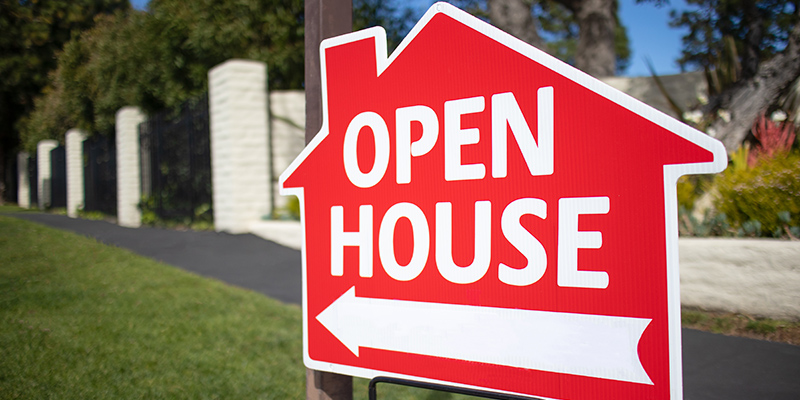Fair housing is an often-discussed topic among leaders and managers of homeowners associations. But, what does it even mean? And how should homeowners associations respond to fair housing laws?
What Is the Fair Housing Act of 1968?
The federal Fair Housing Act (FHA), enacted in 1968, prohibits housing discrimination based upon a person’s race, color, national origin, sex, religion, familial status, or disability. It is commonly associated with landlords and mortgage lenders. Though, homeowners associations may land in trouble as well when it violates the FHA. Even when a rule or policy in the community was enacted without the intention to discriminate, the fair housing authority can still recognize it as discriminatory if it appears as such.
Fair housing does not stop at the federal level, though. Several states have enacted their own fair housing laws that support the FHA. These states include California, Washington, Oregon, New York, Connecticut, New Jersey, Minnesota, and more. State-level fair housing laws function in much the same way as the federal ones, with some added protections and regulations.
For instance, in California, the protected classes are not limited to race, color, national origin, sex, religion, familial status, or disability. California law extends the term to cover gender, sexual orientation, marital status, source of income, and military or veteran status.
Fair Housing Act and Emotional Support Animals
 Homeowners associations will sometimes have a rule that prohibits or limits pet ownership in the community. Even with such restrictions in place, certain cases call for exceptions. Persons with disabilities reserve the right to keep emotional support animals according to both the Fair Housing Act and the Americans With Disabilities Act.
Homeowners associations will sometimes have a rule that prohibits or limits pet ownership in the community. Even with such restrictions in place, certain cases call for exceptions. Persons with disabilities reserve the right to keep emotional support animals according to both the Fair Housing Act and the Americans With Disabilities Act.
Of course, there are some residents that wish to exploit this loophole in their community’s rules. They will claim the need for an emotional support animal as an excuse to keep a pet. It is hard for HOA leaders to separate and discern which requests are valid.
Board members should err on the side of caution when it comes to dealing with such requests. An outright denial may put the HOA in hot water with the FHA. Thus, when constructing pet rules and determining which requests are reasonable, it is best to consult an attorney with a background in the FHA and HOAs.
Prohibited Actions Under the Fair Housing Act and What HOAs Should Do
According to the Fair Housing Act, homeowners associations may not take any adverse action that influences a person’s right to buy, rent, or enjoy the use of a property on the basis of that person’s race, color, national origin, sex, religion, familial status, or disability. And while blatant rules that exclude members of these protected classes are obviously a violation, there are ones that are more subtle. The law also forbids such rules and policies.
The Fair Housing Act homeowners association application means HOA leaders and managers have to be careful. Even when there is no intention to discriminate, policies that affect a protected class in a disproportionate manner can be ruled as a breach.
Here are some examples of potential fair housing violations and what homeowners associations should do about them.
Reasonable Accommodations and Modifications
A person with a disability may request the HOA to make reasonable accommodations or modifications for them. A reasonable accommodation is a change or adjustment to a rule or policy that will allow the person with a disability to use and enjoy a dwelling in a manner equal to everyone else. An example of this is when a disabled person asks the association to make changes to its parking rules to provide them with better access.
On the other hand, a reasonable modification is a structural change to a dwelling or space that will allow a person with a disability full enjoyment of the premises. An example of this is installing a wheelchair ramp at various entrances or widening doorways to allow a wheelchair-bound person easier access to facilities.
Failure to make a reasonable accommodation or modification can put the association in trouble with the law. Keep in mind that homeowners associations may only deny a request if:
- It would impose an undue financial and administrative burden on them; or,
- Fundamentally change their operations.
Considering such requests can vary greatly, there is no golden rule when it comes to evaluation. Associations should tackle this on a case-to-case basis with guidance from an attorney.
Rules Concerning Age
One of the most confusing parts of the FHA is interpreting what counts as discrimination due to familial status. Some courts have interpreted it to mean any type of discrimination relating to age. This spells trouble for a lot of HOAs with age-related rules. Essentially, if an HOA prohibits children of a certain age from using a facility, a court may find that it violates the FHA, even if the rule is designed to protect young kids.
Thankfully, homeowners associations can avoid such liability by simply rephrasing their rule and using more inclusive language. Instead of using age as a restriction, use height as a parameter.
Tenant Screening and Approval
In some HOA communities, homeowners must seek approval from the board before renting out their house or condo to a tenant. This approval process can even extend to the tenant themselves — evaluating things such as credit scores and recommendations from previous landlords.
But, this is also a slippery slope. Associations must make sure to use objective and facially neutral screening criteria. Focus on facts and avoid asking for information that would reveal a potential tenant’s membership in any protected class.
Retaliatory Acts
Courts can also find HOAs guilty of violating the FHA if it commits any act or behaves in a manner that appears retaliatory toward a person who files a complaint against them. For example, a homeowner may lodge a discrimination complaint against the HOA, which then decides to levy a fine against the homeowner for no reason.
What Is the Penalty for Violating Fair Housing Act Regulations?
Civil penalties can range from as low as approximately $20,000 to as high as $50,000. Multiple violations can even warrant as much as around $98,000 in monetary penalties. Additionally, the HOA may need to pay for the attorney’s fees and legal costs of the homeowner. It is worth noting that boards can be held individually liable for FHA breaches.
Fair Housing Act, HOA: The Bottom Line
Violating the FHA and state-level fair housing laws can have crippling effects on a homeowners association, not just in the financial sense but also reputation-wise. As such, HOAs should adopt the necessary precautions and exercise a careful eye when enacting rules and policies. It is best to consult an attorney to avoid liability.
Aside from an attorney, an HOA management company like Clark Simson Miller can also help keep HOAs FHA-compliant. Call us today at 865.315.7505 or contact us online to request a free proposal.
RELATED ARTICLES:
- California’s Accessory Dwelling Unit Law: What Is This About?
- FHA Condo Approval: Frequently Asked Questions
- Can Homeowners Request HOA Financial Reports?


